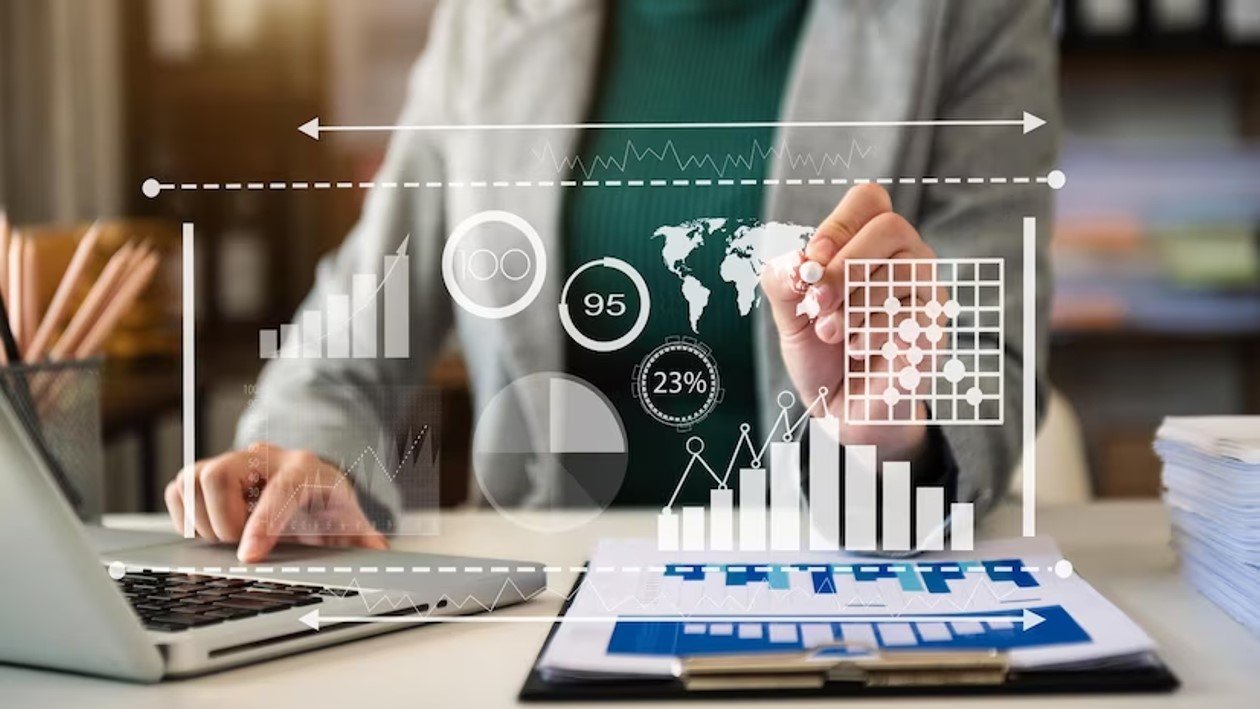How Human Activity Affects the Development of Economic Systems in 2024

Human activity and economic development share a profound interconnection, shaping the course of societies throughout history. In this article, we will delve into the intricate relationship between human actions and the evolution of economic systems, exploring both positive and negative impacts, historical perspectives, and the imperative need for sustainable practices.
A. Definition of Economic Systems
Before delving into the intricate dynamics of human activity and economic development, it’s crucial to understand the fundamentals of economic systems. An economic system encompasses the structures and processes through which societies organize and distribute resources to meet their needs and wants.
B. The Interconnection of Human Activity and Economic Development
The intricate dance between human activity and economic development is evident in the way individuals, communities, and nations engage with resources, technology, and each other. Every action, from daily choices to large-scale innovations, ripples through the economic fabric, influencing its trajectory.
Read More: Navigating Economic Growth: Impact of Environmental Factors
Historical Perspectives
A. Agricultural Revolution
The dawn of agriculture marked a pivotal point in human history, shifting societies from nomadic lifestyles to settled communities. This shift not only altered how humans lived but also laid the groundwork for economic systems based on farming and trade.
B. Industrial Revolution
The 18th-century Industrial Revolution ushered in a new era, characterized by mechanization and urbanization. Human ingenuity fueled unprecedented economic growth, but it also introduced challenges such as labor exploitation and environmental degradation.
C. Post-World War II Economic Boom
In the aftermath of World War II, human activity propelled a global economic boom. The rebuilding efforts and technological advancements fueled an era of prosperity, demonstrating the profound impact of human decisions on economic trajectories.
Modern Challenges
A. Environmental Impact
As our technological prowess has expanded, so too has our impact on the environment. Climate change, pollution, and resource depletion pose significant challenges to economic systems, emphasizing the need for sustainable practices.
B. Globalization and Technology
The interconnected world of the 21st century, driven by globalization and technology, presents both opportunities and challenges. While these factors boost economic growth, they also contribute to job displacement and income inequality.
C. Socioeconomic Disparities
Human activity plays a crucial role in perpetuating or mitigating socioeconomic disparities. Discriminatory practices and unequal distribution of resources can hinder the development of inclusive and sustainable economic systems.
Positive Impacts
A. Innovation and Technological Advancements
Human ingenuity and innovation have consistently driven economic progress. Breakthroughs in technology not only boost productivity but also create new industries, jobs, and economic opportunities.
B. Job Creation and Employment Opportunities
Economic development spurred by human activity often results in increased job creation. This, in turn, enhances living standards and fosters a more robust and dynamic economy.
C. Cultural and Social Influences
The way societies engage with art, culture, and social values influences economic development. Creative industries, for instance, contribute not only to cultural enrichment but also to economic growth.
Negative Impacts
A. Environmental Degradation
Unchecked human activity, especially industrial processes, has led to severe environmental degradation. Deforestation, pollution, and the depletion of natural resources pose existential threats to sustainable economic systems.
B. Economic Inequality
Human decisions regarding resource distribution and economic policies can exacerbate inequality. Addressing this issue is crucial for ensuring that economic development benefits all members of society.
C. Global Economic Crises
The interconnected nature of the global economy means that human decisions in one part of the world can trigger widespread economic crises. This highlights the need for international cooperation and responsible decision-making.
Sustainable Practices
A. Green Technologies
Adopting environmentally friendly technologies is essential for mitigating the negative impact of human activity on the planet. Investing in green energy, sustainable agriculture, and eco-friendly practices is crucial for long-term economic stability.
B. Inclusive Economic Policies
Governments and institutions must prioritize inclusive economic policies to address disparities. Ensuring equal access to education, healthcare, and opportunities contributes to a more balanced and resilient economic system.
C. Community Engagement
Empowering local communities and involving them in decision-making processes fosters a sense of ownership and responsibility. This approach is vital for creating economic systems that prioritize the well-being of both people and the planet.
Future Outlook
A. Balancing Economic Growth and Environmental Conservation
The future requires a delicate balance between economic growth and environmental conservation. Sustainable practices and responsible consumption are essential to ensure a harmonious coexistence between human activity and the planet.
B. The Role of International Collaboration
Addressing global challenges necessitates international collaboration. Countries must work together to develop and implement policies that promote economic development while safeguarding the environment and promoting social equity.
Adapting to Technological Changes
As technology continues to evolve, societies must adapt. Embracing technological advancements responsibly and ensuring that their benefits are shared widely will be crucial for shaping the economic systems of the future.
Conclusion
Ultimately, the intricate dance between human activity and economic development paints a dynamic canvas that evolves through history. From the agricultural revolutions of the past to the technological leaps of today, our actions shape economic systems in profound ways. As we stand at the crossroads of environmental challenges, socioeconomic disparities, and the promise of innovation, the choices we make will determine the course of our collective future.
In moving forward, the imperative lies in finding a delicate equilibrium. Balancing economic growth with environmental conservation, fostering inclusive policies, and embracing technological changes responsibly are the stepping stones toward resilient economic systems.
As we navigate this journey, international collaboration becomes paramount. The challenges we face are global, and only through unity can we hope to craft sustainable solutions that transcend borders.
In the end, it is not just about economic growth; it is about building a future where prosperity is shared equitably, where innovation serves humanity, and where the legacy we leave is one of harmony between our ambitions and the well-being of our planet.
Read More: 5 Ways AI Transformed The Global Economy
FAQs: Development of Economic Systems
How does innovation contribute to economic development?
Innovation drives economic progress by creating new industries, generating employment, and enhancing productivity.
What role does environmental conservation play in economic sustainability?
Environmental conservation is integral to economic sustainability, as a healthy planet is essential for long-term prosperity.
How can governments address economic inequality?
Governments can address economic inequality through inclusive policies, ensuring equal access to education, healthcare, and opportunities for all.
Why is international collaboration crucial for economic stability?
International collaboration is essential to address global challenges, as economic decisions in one part of the world can impact others.
How can individuals contribute to sustainable economic development?
Individuals can contribute by adopting sustainable practices, supporting eco-friendly initiatives, and advocating for responsible consumption.







